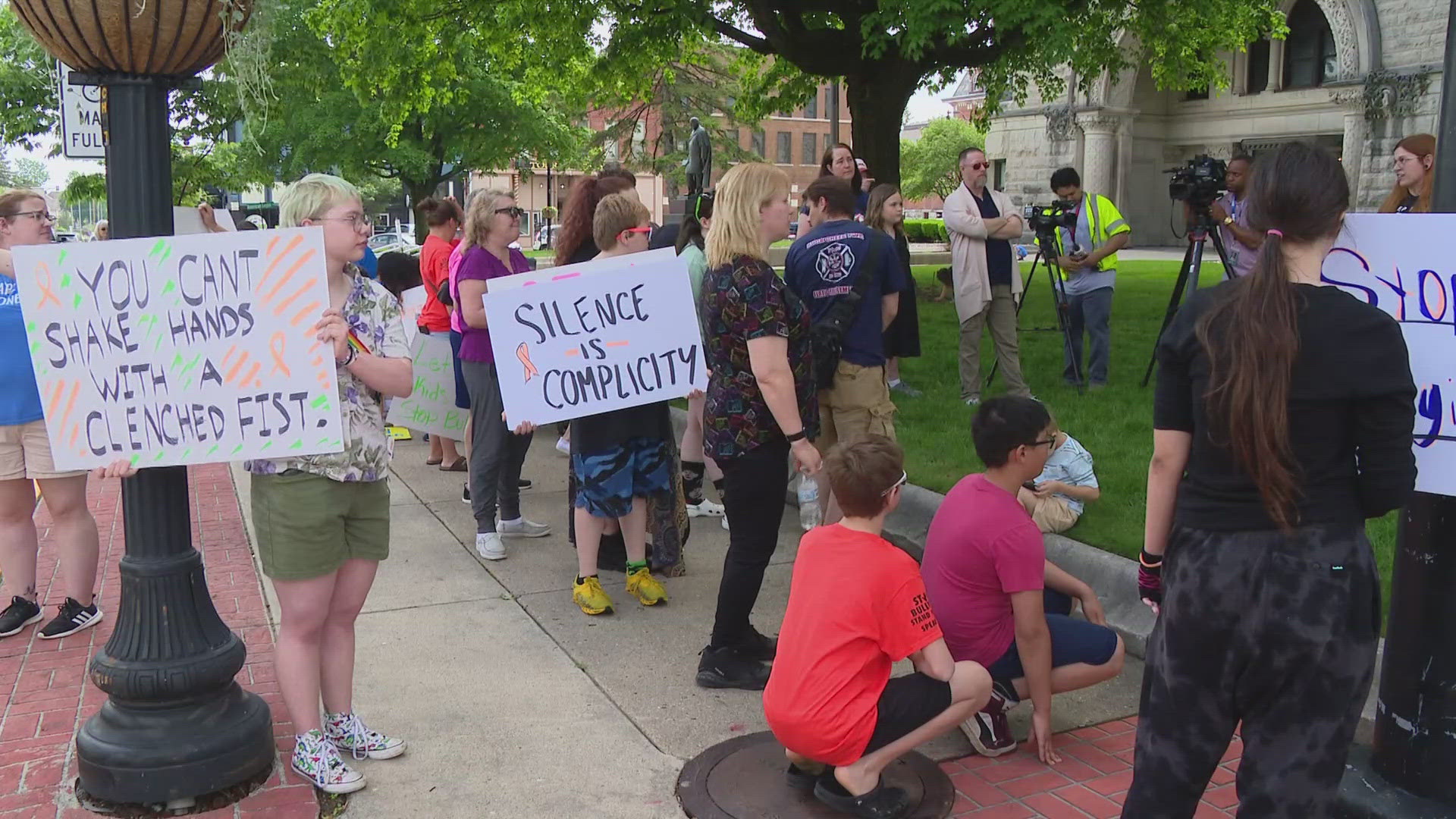Bob Segall/13 Investigates
When Ezra Shelton pumps five gallons of gasoline, he expects five gallons of gas.
"It's gotta be close," Shelton says. "Very close."
Shelton is a Marion County Weight and Measures Inspector. During the next six months, Shelton and dozens of other county and state inspectors will be checking every gas pump across Indiana to ensure the pumps are both safe and accurate.
Pumps that pass their test will be approved for another year of use. Those that fail will be shut down until they are fixed. When a pump is shut down, inspectors refer to it as "red tagged" because they attach a red tag to the pump's nozzle to indicate it is out of service.
"Most of them are fine, but we do see some red tags," Shelton said. "Those need attention right away."
Last year, inspectors conducted 74,145 tests on Indiana gas pumps, which resulted in 6,362 failures. That means about nine percent of gas pumps statewide failed their annual inspection.
Last summer at the 71st and Michigan Shell station on Indianapolis' northwest side, Shelton red tagged five of the gas station's twelve pumps because they were not dispensing enough gas. Pump #5, for example, was short-changing customers five cubic inches (2.8 ounces) of unleaded regular gasoline for every gallon pumped. That's equivalent to six cents per gallon in extra profits for the gas station.
Inspectors like Cary Woodward, who is Director of Weights and Measures in Hamilton and Boone Counties, say they have seen some gas pumps that favored the gas station operator by as much as 30 cents per gallon.
"It's not because they're trying to be dishonest," Woodward told WTHR. "It's almost always because of mechanical malfunction. These machines are very accurate, but sometimes they need a little adjusting."
According to Indiana state standards, a gas pump is approved for use if it is accurate within six cubic inches (3.3 ounces) for every five gallons of fuel dispensed. Some county and city inspectors use a stricter standard to further reduce inaccuracies.
Free gas?
A review of local and state records by 13 Investigates shows that most red-tagged pumps in 2006 were not cheating customers at all. Rather than dispensing too little gasoline, they were pumping too much. In other words, they were giving away free gas!
Last month, inspectors found some pumps at the Marathon gas station in Danville had been giving away three cents a gallon in free gas. Inspectors temporarily shut down a pump at the Murphy Oil station in Franklin because it was giving away five cents a gallon in free gas. And last year, at the 7-Eleven Citgo located at 1731 E. 52nd Street on Indy's north side, inspectors found some pumps had been giving away as much as 38 cents of free gas for every gallon pumped. To put it another way, customers who purchased eight gallons of gas got an extra gallon absolutely free.
"I do see pumps that are giving gas away," said Kyle Noone, Weights and Measures Director in Madison County. "That might surprise a lot of people, but it happens."
So why do inspectors shut down a pump if it's working in your favor?
"Our goal is to make sure there's equity in the market place," said Marion County inspector Michelle Phillips. "I like free gas as much as the next guy, but we have to be fair to both sides - fair to the customer and fair to the operator."
Quality checks
While some inspectors check to see how much gas you're getting, others are checking to see what's in that gas.
State inspectors like Mike Horan conduct special tests at hundreds of gas stations every year to make sure you're getting the type of gasoline you are paying for. Horan collects his samples, then takes them to a state lab on the east side of Indianapolis where computers analyze octane levels in the gasoline.
It is rare for inspectors to find gasoline that does not measure up, but the tests do show problems.
Last year, the Citgo station at 229 Grand Valley Blvd. in Martinsville was one of about a dozen Indiana gas stations that received an emergency "stop sale" order after state inspectors found octane inaccuracies. That Citgo was cited by the state for selling its regular unleaded gasoline at super unleaded prices.
Inspectors admit all this is probably more than you bargained for when you pull up to the pump.
That's why inspectors are out there in the first place. They're looking for problems at the pump so you don't have to.
"It's our job to make sure you're getting your money's worth," Noone said. "That's what we do."
Coming up Tuesday night on Eyewitness News at eleven: Pumps that are inspected and approved get a special sticker, which is meant to give you peace of mind. But that sticker might be very misleading. 13 Investigates discovered some pumps have not been inspected even though they look like they have been. See what we've found and why it's prompted the state to launch its own investigation Tuesday night on Eyewitness News.
| Gas station searchable database - Search WTHR's Gas Station database to see if your favorite gas station has been cited for short changing customers or giving away free gas. |



